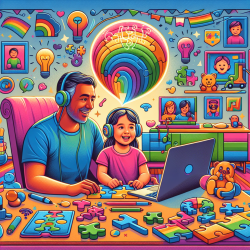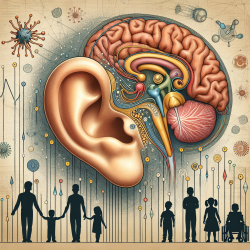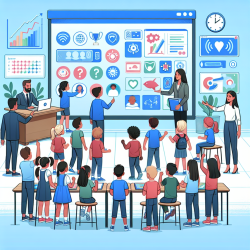Effective communication skills are foundational for children's academic and social success. As practitioners dedicated to fostering these skills, it is crucial to utilize evidence-based strategies. A recent systematic review, "Remediation of learners struggling with communication skills: a systematic review," offers valuable insights into identifying and remediating communication deficiencies.
Key Findings from the Systematic Review
The systematic review analyzed 16 studies focusing on healthcare trainees but has applicable insights for children. Here are the key findings:
- Early Identification: Identifying communication skill deficiencies early is crucial. The review found that clinical OSCEs (Objective Structured Clinical Examinations) were the most effective assessment tools.
- Individualized Remediation Plans: Developing personalized plans tailored to each learner's specific needs enhances remediation success. These plans should include input from various stakeholders, including educators, parents, and the learners themselves.
- Experiential Learning with Feedback: Incorporating experiential learning opportunities, such as role-plays and simulated interactions, combined with structured feedback, significantly improves communication skills.
Applying These Findings to Improve Outcomes for Children
Practitioners can leverage these insights to create effective remediation programs for children struggling with communication skills:
1. Early and Accurate Assessment
Implement regular and systematic assessments to identify communication deficiencies early. Tools such as observational checklists and structured interactions can help in pinpointing specific areas needing improvement.
2. Develop Individualized Plans
Each child is unique, and so should be their remediation plan. Collaborate with educators, parents, and the child to create a plan that addresses their specific challenges and leverages their strengths.
3. Incorporate Experiential Learning
Use role-plays, simulated interactions, and real-life communication scenarios to provide hands-on practice. Immediate and constructive feedback is essential to help children understand their mistakes and learn effective communication strategies.
4. Continuous Reassessment and Feedback
Regularly reassess the child's progress and provide ongoing feedback. This iterative process ensures that the remediation strategies are effective and allows for adjustments as needed.
Encouraging Further Research
While the systematic review provides a solid foundation, there is a need for more research focused specifically on children. Practitioners are encouraged to contribute to this body of knowledge by documenting and sharing their experiences and outcomes.
By implementing these evidence-based strategies, practitioners can significantly enhance the communication skills of children, leading to better academic and social outcomes.
To read the original research paper, please follow this link: Remediation of learners struggling with communication skills: a systematic review.










